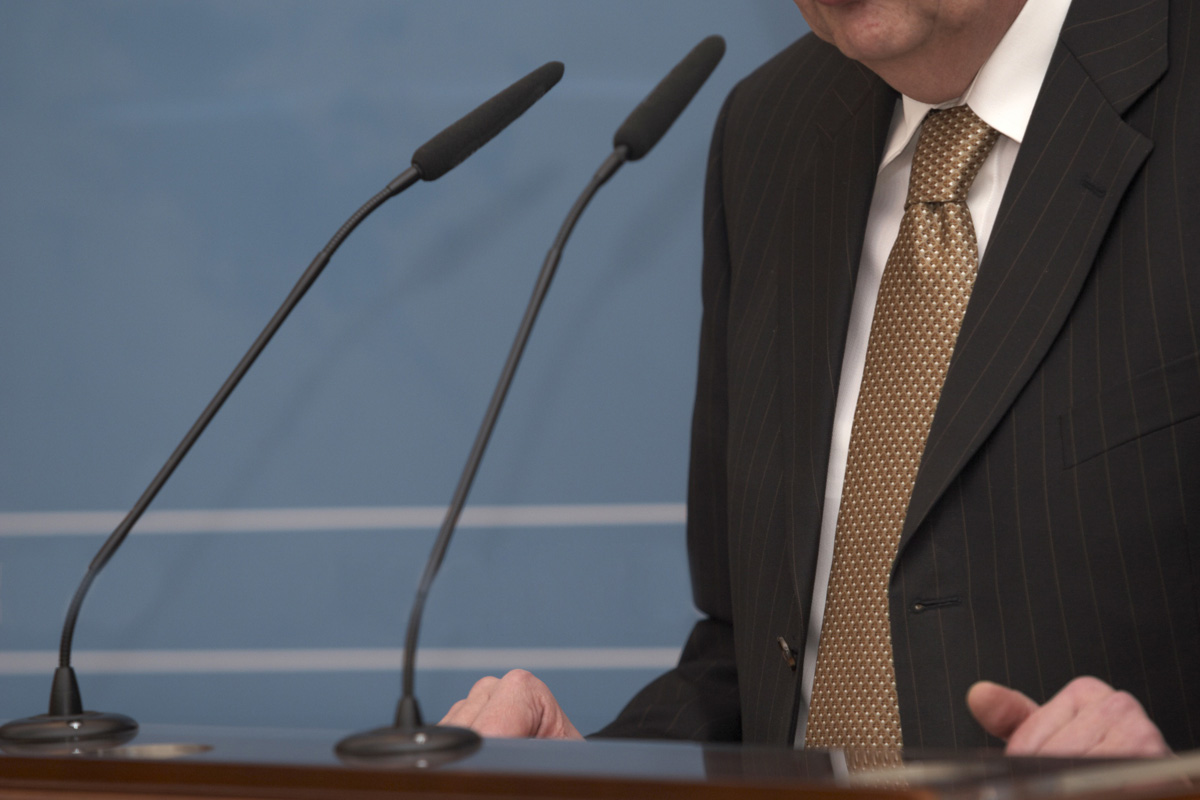Party leaders use Facebook and YouTube as debate platform
Brown, Cameron and Clegg will answer the public's favourite questions online as social media's involvement in the general election goes into overdrive.

Britain's three main party leaders have agreed to take part in a series of online 'digital debates' on Facebook and YouTube in the run-up to the 2010 general election.
Gordon Brown, David Cameron and Nick Clegg will represent Labour, the Conservatives and the Lib Dems respectively in the debates the first time the internet has ever been used as a platform for political discussion.
The three will face questions posed by members of the public, with their answers broadcast on Facebook and YouTube.
Users of the two sites can pose questions in either text or video form in a choice of five categories: economy, health and education, law and order, foreign policy and miscellaneous. A public vote will identify the two most popular questions in each category, which will then be presented to the party leaders, who have pledged to respond no later than April 28, 10 days before election day.
While this means the politicians will be given plenty of time to frame a considered response, unlike the forthcoming three live television debates another election first the move is nonetheless being seen as opening up a new avenue for political parties to engage with voters.
"Although the televised debates will be a historic first, we feel that that there is an opportunity for a different type of platform that allows voters to be in charge of the questions," said Google's director of communications Peter Barron. "By collaborating with Facebook to put together one initiative we hope to enable as many voters as possible from across the UK to take part."
Facebook's director of policy, Richard Allan, said the "dawn of the digital election" was a "transformative moment for democracy in Britain".
Get the ITPro daily newsletter
Sign up today and you will receive a free copy of our Future Focus 2025 report - the leading guidance on AI, cybersecurity and other IT challenges as per 700+ senior executives
"By allowing voters to cross-examine their leaders, these digital debates will put the voters firmly in charge," Allan said. "This marks a decisive shift away from the constraints of top-down traditional media and will take full advantage of unique scale and reach of Facebook, thus changing the way that politicians campaign for good."
The use of social media has already featured widely in the run-up to this year's general election as politicians desperately seek to tap into a market that has either never been eligible to vote in the past, or has chosen not to.
In addition to the 'digital debates', Facebook has teamed up with the Electoral Commission to try and sign up new voters ahead of election day. Facebook users visiting the site from Saturday have been asked whether they had registered to vote. If the answer is 'no', they are sent to a special page where they can enter their details and then print out a personalised voter registration form to be posted to the local electoral office.
-
 Bigger salaries, more burnout: Is the CISO role in crisis?
Bigger salaries, more burnout: Is the CISO role in crisis?In-depth CISOs are more stressed than ever before – but why is this and what can be done?
By Kate O'Flaherty Published
-
 Cheap cyber crime kits can be bought on the dark web for less than $25
Cheap cyber crime kits can be bought on the dark web for less than $25News Research from NordVPN shows phishing kits are now widely available on the dark web and via messaging apps like Telegram, and are often selling for less than $25.
By Emma Woollacott Published
-
 The creator effect: Shaping the future of travel
The creator effect: Shaping the future of travelWhitepaper The way forward for the travel sector
By ITPro Published
-
 Starmer bets big on AI to unlock public sector savings
Starmer bets big on AI to unlock public sector savingsNews AI adoption could be a major boon for the UK and save taxpayers billions, according to prime minister Keir Starmer.
By George Fitzmaurice Published
-
 UK government targets ‘startup’ mindset in AI funding overhaul
UK government targets ‘startup’ mindset in AI funding overhaulNews Public sector AI funding will be overhauled in the UK in a bid to simplify processes and push more projects into development.
By George Fitzmaurice Published
-
 UK government signs up Anthropic to improve public services
UK government signs up Anthropic to improve public servicesNews The UK government has signed a memorandum of understanding with Anthropic to explore how the company's Claude AI assistant could be used to improve access to public services.
By Emma Woollacott Published
-
 The UK’s AI ambitions face one major hurdle – finding enough home-grown talent
The UK’s AI ambitions face one major hurdle – finding enough home-grown talentNews Research shows UK enterprises are struggling to fill AI roles, raising concerns over the country's ability to meet expectations in the global AI race.
By Emma Woollacott Published
-
 US government urged to overhaul outdated technology
US government urged to overhaul outdated technologyNews A review from the US Government Accountability Office (GAO) has found legacy technology and outdated IT systems are negatively impacting efficiency.
By George Fitzmaurice Published
-
 Government urged to improve tech procurement practices
Government urged to improve tech procurement practicesNews The National Audit Office highlighted wasted money and a lack of progress on major digital transformation programmes
By Emma Woollacott Published
-
 Government says new data bill will free up millions of hours of public sector time
Government says new data bill will free up millions of hours of public sector timeNews The UK government is proposing new data laws it says could free up millions of hours of police and NHS time every year and boost the UK economy by £10 billion.
By Emma Woollacott Published